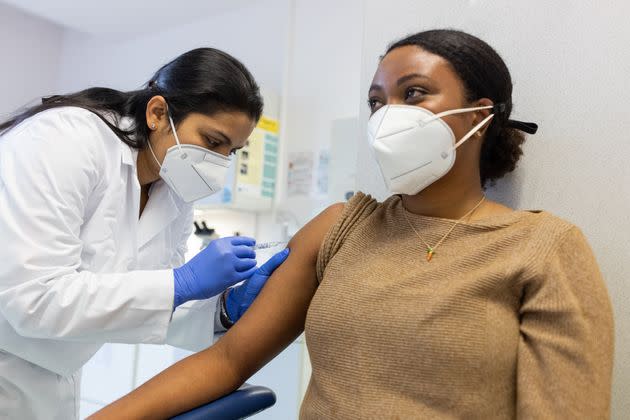Do You Need Another COVID Booster? Here's What Experts Say.
It’s now been more than six months since the bivalent COVID-19 shot was authorized for use in adults in the U.S. The updated formula targets the original virus strain and the highly contagious omicron variant.
But since it’s now been available for a considerable amount of time, many folks who got the shot when it was first offered in September are worried about waning protection, especially since the initial vaccine had a decrease in protection about four months after getting the jab. So do you need another dose to protect yourself from getting very sick?
“This is a good and increasingly common question,” said Dr. Mark Loafman, the chair of family and community medicine at Cook County Health in Chicago.
Earlier this winter, Canada and the United Kingdom updated their vaccine guidance to allow high-risk folks to get a second bivalent booster. And as of April 19, the Centers for Disease Control and Prevention recommended a second bivalent booster for certain at-risk groups — but not for everyone.
What are these new guidelines? And do you actually need a second bivalent booster? Below, experts weigh in on what to know:
So, who can get a second booster dose?
A second bivalent booster dose is available for adults 65 and older under the CDC guidelines.
“If you’re ages 65 and older and received an updated COVID-19 vaccine dose (either Pfizer or Moderna) at least four months ago, you may now choose to receive an additional dose,” CDC spokesperson Kristen Nordlund told HuffPost via email.
People who are moderately or severely immunocompromised also can get additional booster doses, according to the CDC’s new guidance. If you fall into this category, you are eligible for additional bivalent booster shots two months after your last updated vaccine dose (again, either Pfizer or Moderna) with at least two months between each booster. This means immunocompromised people can get multiple booster doses every couple of months, depending on what they decide with their doctor.
“CDC’s updated guidance allows more flexibility for healthcare providers to administer additional doses to their immunocompromised patients as needed, taking into consideration the individual’s clinical circumstances,” Nordlund said.
Why isn’t a second dose available to all?
“Considerations for a second dose arise from studies showing that protective antibody levels from the booster vaccine diminish over time, just as we experienced with the initial COVID mRNA vaccine,” Loafman said.
Experts are still seeing good protection against severe disease and hospitalization in those who got the bivalent booster — meaning most people aren’t at risk for negative COVID outcomes because of the booster’s protection.
Many people think it’s like a light switch, explained Dr. William Schaffner, a professor of preventive medicine in the department of health policy at Vanderbilt University Medical Center in Nashville. They think when they reach six months they’re not protected at all, but that is not the reality. “You still have substantial residual protection,” Schaffner said.
Nordlund of the CDC underscored that the bivalent vaccine does still provide protection for most people — immunocompromised folks and people above 65 are just at higher risk for severe illness.

 Yahoo Autos
Yahoo Autos 

